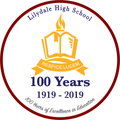CAREERS

What's been happening!
Year 11 students have been participating in Careers interviews since the start of Term 2. The interviews have been held via Google Meet and have focused on developing a two year plan.
During the sessions, students were also introduced to VTAC, a website that they will use next year to apply for University and TAFE courses.
Work Experience and Structured Workplace Learning
Cancelled until further notice
If students have put in Work Experience forms recently, they will be held until the program resumes. If you would like to have a look at a few virtual workplaces, please visit the Skills Road website:
VET Courses
Please double check with your VET provider as to whether your VET course will be running online or face-to-face from Wednesday May 27.
University and TAFE Online Webinars
All advertised University, TAFE and private provider face-to-face expos that were scheduled through to July have now been cancelled. Providers have released a number of webinars which are now running in their place.
COLLARTS are running an online webinar series through the June/July school holidays. The webinars will include; Interior Design, Fashion & Sustainability, Fashion Marketing, Animation & VFX, Digital & Social Media, Dramatic Arts (Comedy), Screen & Media, Music Performance, Music Production, Audio Engineering, Entertainment Management and Entertainment Journalism.
Register today at:
KANGAN INSTITUTE has a 3D Campus Tour or their Automotive Centre of Excellence. It’s a 3D campus tour of our facilities that students can navigate around to get an idea of what the campus looks like and the various automotive streams that we offer.
http://www.aceauto.com.au/3d-tours/
LA TROBE UNIVERSITY has their La Trobe Aspire Early Admissions Program webinar on Wednesday 27 May, 5 pm-6 pm.
MONASH UNIVERSITY has Information Evenings until the end of June at:
https://www.monash.edu/information-evenings
There also have virtual tours of Monash spaces on the Monash University website, with spaces including the Clayton Campus Tour, Sir Louis Matheson Library, the Monash Wind Tunnel, Moot Court and more.
MONASH BUSINESS SCHOOL The Monash Business School have developed a suite of videos explaining aspects of their courses and the faculty, including: An introduction to our comprehensive degrees - The world is changing and we're changing with it by Dean MBUS - Tips for online learning - For agility in changing circumstances.
You can find their videos on the Monash Business School YouTube channel
VICTORIA UNIVERSITY has online Information Evenings delivered via ZOOM Webinars commencing from May. Students can select a specific study area of interest and tune in to hear about VU’s Block Model, industry connections and pathway options available.
Students will be able to hear firsthand from academics and current students in a specific study area of their choice and ask questions via the Q&A function available.
All sessions will be delivered from 6.00 pm to 7.00 pm. Students are able to register for these sessions at:
https://study.vu.edu.au/informationevenings
Career in Focus: Electrical and Mechanical Engineering
Students often ask what the difference is between electrical engineering and mechanical engineering. There are many explanations regarding the difference and the summaries below should provide some clarification.
Mechanical Engineering and Electrical Engineering are near polar opposites in the engineering world. Mechanical Engineering is based on the mechanics’ field of physics, while Electrical Engineering is based on the electricity and magnetism field of physics. I have made things quite simple here. If you love solving problems in mechanics’ portion of physics, then definitely Mechanical Engineering is for you and if you feel attraction in solving problems in electricity and magnetism, then Electrical Engineering can be a right choice for you. (Vikash Gait)
Mechanical Engineering
Mechanical Engineers plan, design and oversee the development, installation, operation, and maintenance of machinery. They conduct research to solve practical engineering problems and improve efficiency. (Good Universities Guide - Mechanical Engineer).
In fact, it has to do with the design of any mechanical system and the assembly of different mechanisms to form a machine. This can be combined with other elements, such as the study and effect of heat in motion (Thermodynamics), the flow and application of compressible and incompressible fluid (Fluid Mechanism), mechanical design, computer/electronics engineering with the application of automatic control, (Mechatronics) etc.
Electrical Engineering
Electrical Engineers design, develop and supervise the manufacture, installation, operation, and maintenance of electrical systems. They work on systems for the generation, distribution, utilisation, and control of electric power. They also work on electronic systems used for computing, communications, and other industrial applications. (Good Universities Guide - Electrical Engineer)
Electrical Engineering involves the design and study of electronics, power, and electrical systems. Electrical Engineering deals with the problems associated with large-scale electrical systems such as power transmission and motor control. So, Electrical Engineers are usually concerned with using electricity to transmit energy.
A simple analogy: Being a mechanical engineer you will learn to build a car’s body and engine, while being an electrical engineer you will be able to handle/build/manage the car's battery. (Vikash Gait)
Read more at Difference Between Mechanical and Electrical Engineering
I want a job in…Project Management
There are so many similar definitions or statements of what a Project Manager does, and one useful website* states that Project Managers ensure the project is completed on time and within budget, that the project's objectives are met and that everyone else is doing their job properly. Project Managers oversee the project to ensure the desired result is achieved, the most efficient resources are used, and the different interests involved are satisfied.
Typical industries Project Managers work or are employed in:
- Construction companies
- Architects
- Software producers
- Commercial retailers
- Engineering firms
- Manufacturers
- Public sector organisations
- Aviation
*Target Jobs UK - Project Management
The Job Outlook website is very useful to learn more about the future projections for this career.
There are several universities in Victoria that offer courses or majors focused on equipping students with a qualification or specialisation in project management, and a some of these courses include:
| INSTITUTION | COURSE | VCE PREREQUISITES | ATAR 2020 |
Charles Sturt University | Management | No VCE prerequisites but an ATAR of 60+ is usually required | n/a (AW) |
Deakin University | Business Analytics | Units 3 and 4: a study score of at least 25 in English (EAL) or at least 20 in English other than EAL. | 70.80 (M) |
| Construction Management | 60.40 (WF) | ||
Federation University | Units 3 and 4: a study score of at least 20 in any English. | n/a (B) n/a (Mt. H) | |
| Information Technology (Big Data and Analytics) | n/a (B) n/a (Mt. H) | ||
La Trobe University | Engineering (Industrial) | Units 3 and 4: a study score of at least 25 in English (EAL) or at least 20 in English other than EAL; Units 3 and 4: a study score of at least 20 in one of Maths: Mathematical Methods or Maths: Specialist Mathematics. | 70.80 (Be)67.95 (M) |
| Information Technology | Units 3 and 4: a study score of at least 25 in English (EAL) or at least 20 in English other than EAL. | 55.15 (Be)55.35 (M) | |
RMIT University | Aviation | Units 3 and 4: a study score of at least 30 in English (EAL) or at least 25 in English other than EAL; Units 3 and 4: a study score of at least 25 in any Mathematics. | 78.25 (C) |
| Engineering (Civil and Infrastructure | Units 3 and 4: a study score of at least 30 in English (EAL) or at least 25 in English other than EAL; Units 3 and 4: a study score of at least 20 in one of Maths: Mathematical Methods (any) or Maths: Specialist Mathematics. | 80.30 (C/B) | |
| Project Management | Units 3 and 4: a study score of at least 20 in any Mathematics; Units 3 and 4: a study score of at least 30 in English (EAL) or at least 25 in English other than EAL. | 75.00 (C) | |
| Units 3 and 4: a study score of at least 30 in English (EAL) or at least 25 in English other than EAL; Units 3 and 4: a study score of at least 25 in one of Maths: Mathematical Methods (any) or Maths: Specialist Mathematics. | 83.00 (C) | ||
Swinburne University | Aviation Management | Units 3 and 4: a study score of at least 30 in English (EAL) or at least 25 in English other than EAL; Units 3 and 4: a study score of at least 20 in any Mathematics. | 65.50 (H) |
Tim Kogelman and Craig Harris



